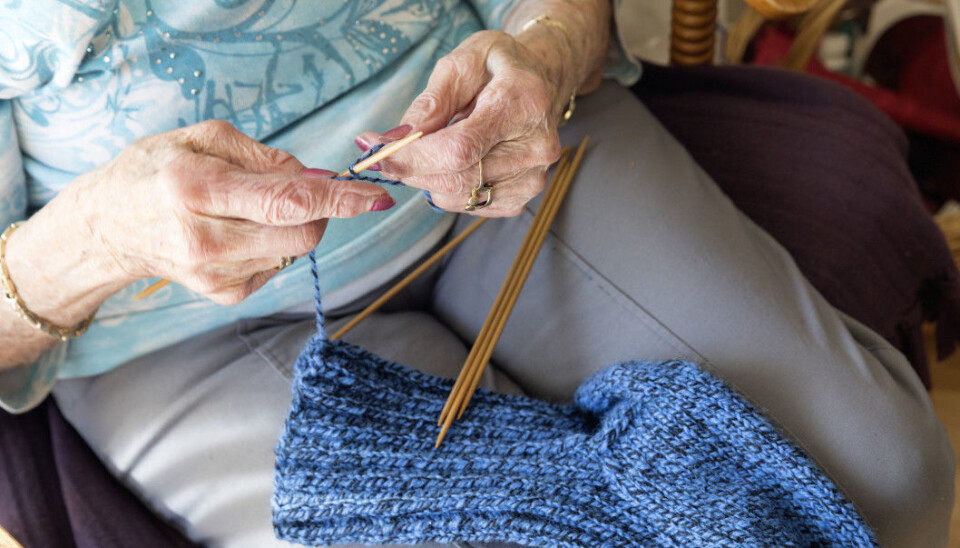
Crosswords, knitting and gardening lower the risk of Alzheimer's
Physical activity can prevent dementia in the elderly. But activities that stimulate the brain, such as reading, going to concerts or weeding the garden, also lower the risk of Alzheimer’s disease regardless of how much physical activity the person does, a Swedish study says.
We’ve all seen expert reports that tell us physical exercise can help reduce the risk of dementia in old age.
But it turns out that less strenuous activities such as walking, reading or cultural experiences can help prevent the development of Alzheimer's or other dementia diseases.
A study from the University of Gothenburg describing these findings was recently published in the journal Neurology.
“These are simple, enjoyable activities that most people can do, all of which protect against dementia,” says Jenna Najar in a press release from the university. She is a medical doctor and has taken her doctoral degree on the subject at the Sahlgrenska Academy at the University of Gothenburg.
The researchers followed 800 women for 44 years. When the study started in 1968, the women were 47 years old, on average. When the study was completed in 2012, they averaged 91 years old.
Documented activities
The researchers regularly asked the women what physical and mental activities they did that could stimulate the brain.
The researchers then divided the participants into three groups, according to how physically active they had been.
The women in one group were completely passive.
The ladies of the other group went for a walk, bowled or cycled for at least four hours a week.
The third group did hard physical exercise, such as jogging, playing tennis or swimming for at least three hours a week.
Being physically active halved the risk
During the 44-year study, 194 women developed dementia, or nearly one in four.
It turned out that the most physically active women halved their risk of developing dementia from vascular disease, compared to women who were physically completely inactive.
This was true regardless of how mentally active the inactive women had been.
In addition, the women were asked to describe their cultural activities. The women who were most culturally active were also protected against dementia, especially Alzheimer's.
Gardening and knitting paid off, too
In order for the researchers to be able to measure the non-physical activity of the women, they asked the women to give themselves points on a scale from zero to two, based on how little or much they undertook the following activities:
- Intellectual activities such as reading, writing or solving crossword puzzles
- Artistic hobbies such as singing in a choir, playing an instrument, going to concerts or the theatre
- Manual activities such as sewing, knitting or working in the garden
- Participating in different groups or associations
- Religious activities.
The women could get a total of 10 points for being highly active in all of these different forms of recreation. So the researchers divided the women into two groups based on their point scores.
Culture also protected physically inactive people
Women who were artistic, intellectual, or who undertook manual activities had a 46 per cent lower risk of developing Alzheimer's disease than women who weren’t so mentally active.
In other words, reading, singing in choirs, knitting, solving crosswords or puttering around in the garden can protect almost as much against dementia as being extremely physically active.
These culturally active women also had a 34 per cent lower risk of developing other forms of dementia.
“This was true regardless of how physically active they had been,” Najar said.
The results were independent of other risk factors for dementia, such as smoking, high blood pressure, high body mass index and low education.
A little is better than nothing
"This shows that there are many opportunities for preventing dementia, and that it can be just as important to focus on cultural activities as on physical activity in order to maintain health in old age," says Ingmar Skoog in the university’s press release.
Skoog is director of AgeCap, the Centre for Aging and Health at the University of Gothenburg, which was responsible for the study.
“It’s also important to remember that high levels of activity are not necessary for people to reap a beneficial effect,” he said.
----------





